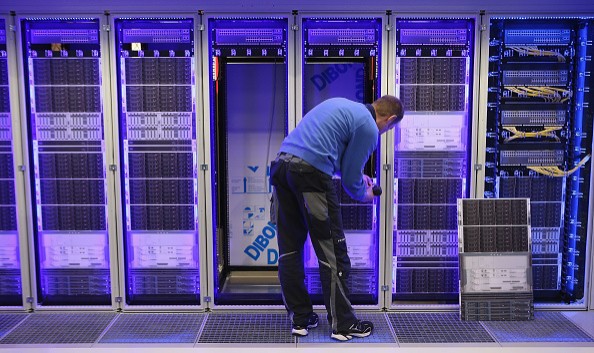Arm may be lording it over in the mobile device sector right now, but a bigger, more lucrative market is calling: the server market. And the demand is growing by the day.

This was the conclusion of the market research firm TrendForce, when they took a closer look at how cloud computing providers have been adopting Arm-based processors, writes TechRadar. As per their analysis, TrendForce expects the demand for Arm chips to grow substantially to around 22 percent by 2025.
Cloud computing has been on a tear right now in a business sense. More companies are demanding AI and high-performance computing, which is why they're turning to the cloud to handle their digital infrastructures. In turn, cloud is looking to the capabilities of Arm-based servers to help satisfy the increasing demand.
That's because Arm-based processors have several distinct advantages over typical server processors from the likes of Intel or AMD. According to TrendForce, these advantages include:
Full support for rapidly changing, diverse workloads at scale with costing too much
Better customization options to fit very niche markets
A much smaller energy footprint due to better power efficiency
A quick look at modern server/data center chips from Intel and AMD corroborate these claims. For one, Team Blue's Xeons and Team Red's EPYC chips do cost an insane amount of money for the performance they offer. But most of the time, the performance is limited to limited, predetermined workloads that won't fit everyone (hence, the customization options for niche markets).
Furthermore, these traditional x86 processors are extremely power-hungry due to how they're designed. In a world that's been increasingly pushing for "green" power initiatives, the sky-high power consumption of x86-based data centers just won't fly. Arm chips, in comparison, are designed for excellent power efficiency, which once again contributes to a smaller overall cost.

Arm's Slow Takeover Of The Tech World
With this news, it can be safe to say that Arm could be the future of cloud computing itself, according to TheNewStack.
Many companies have been leveraging the advantages of Arm over x86 recently. Among these is Amazon, whose custom Graviton processor used a bevy of Arm chips. By doing so, they are able to service their cloud computing needs (which are massive considering Amazon's business) while saving as much as 40% on operational costs.
At the end of the day, it's really all about the low cost of entry (and maintenance) when it comes to using Arm processors. Compared to just buying x86 chips outright, companies save so much more because Arm chips aren't sold, but licensed.
Licensing the technology is so much cheaper, and companies like Apple know this. This is why the likes of Apple or Qualcomm can make their own Arm-based processors to power their devices, all without having to worry about reworking their designs just to fit the more rigidly designed x86-based chips, writes CircleCI.

This article is owned by Tech Times
Written by RJ Pierce
ⓒ 2026 TECHTIMES.com All rights reserved. Do not reproduce without permission.




